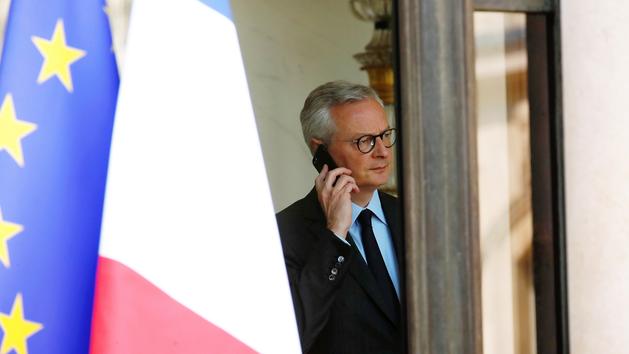The Minister of Economy and Finance, Bruno Le Maire, said last Tuesday that it would be a "big mistake" to support non-viable businesses hit by the economic crisis caused by the coronavirus. " We are going to get help from the banking sector to choose the activities that are healthy, but without supporting unsustainable businesses (...) Because that would be losing public money and now is not the time to do so." spend for nothing, "he said during a videoconference organized by the European Council for International Relations (ECFR).
As a reminder, since March 25, the government has set up State Guaranteed Loans (PGE), a device that can climb up to 300 billion euros. In France, more than 85% of companies are eligible for these EMPs. That is to say, in the event of non-reimbursement, the State will assume the rest of the credit to be reimbursed.
At the last count, almost half a million companies have applied for an EMP for some 93 billion euros in loans. The government has notably granted loans of 5 billion euros to Renault and 7 billion to Air France, two large groups hit hard by the crisis. Overall, 90% of these loans were granted to VSEs-SMEs. Among other business support measures, the state also funded partial unemployment measures to avoid mass layoffs.
Read also: Partial unemployment: everywhere in Europe, governments are cutting their aid…
Bercy now intends to select. But how do you objectively determine viable and non-viable businesses? It is the job of bankers but also of accountants. They will assess three elements to determine whether it is worth injecting public money into a business. " We will make a first diagnosis to see if the company is on a buoyant market or not, " explains Charles-René Tandé, president of the Order of Chartered Accountants. “ Then we will determine if the business is profitable, if it is able to generate margins. Finally, we will assess its cash flow: 'is it sufficient?' From there, we will be able to say if this or that is a rather viable business, or if we can not get much out of it. "
With the Covid crisis, many companies found themselves facing cash flow difficulties. They had charges, rents, expenses to settle, but more cash inflows. Hence these state guaranteed loans to deal with the situation. Now, as activity is starting up in various sectors, the question of repaying their credit arises.
On this point, the role of chartered accountants and banks will therefore be to conduct a financial analysis of the situation, on a case-by-case basis, while also observing the financial situation of companies, prior to the crisis. According to the Banque de France, as of December 31, 2019 - i.e. before the Covid-19 crisis - 63% of companies (out of a total of 270,461) had a good capacity to honor their financial commitments, i.e. that they did not present any particular difficulties in paying their charges, repaying their debts. For others, it was already more difficult. This suggests those who risk being considered " non-viable ".
If it is too early to have a quantified estimate, by the end of the summer we should probably be better able to count the economic " dead ". In the meantime, the president of the Order of Chartered Accountants advises business leaders to take stock with their chartered accountant to assess the cost of the economic crisis linked to the coronavirus epidemic. “ Sooner or later you will have to repay PGE loans (government guaranteed loans) . Business leaders should not wait a year to take stock of this situation. Otherwise we risk a wave of bankruptcy. However, this analytical work can help avoid this scenario, ”he warns.
Should we really expect a wave of business bankruptcies? Far from the tidal wave announced, the order of chartered accountants is expecting a rate of bankruptcy filings of around 3 to 4% in the coming months. " We are going to witness a wave of social plans, but companies will hold out, " anticipates Charles-René Tandé. A wave which has already started to break. Today, Air France has announced the elimination of 7,500 positions within the group. Yesterday Airbus announced its intention to reduce its workforce by 11%.







